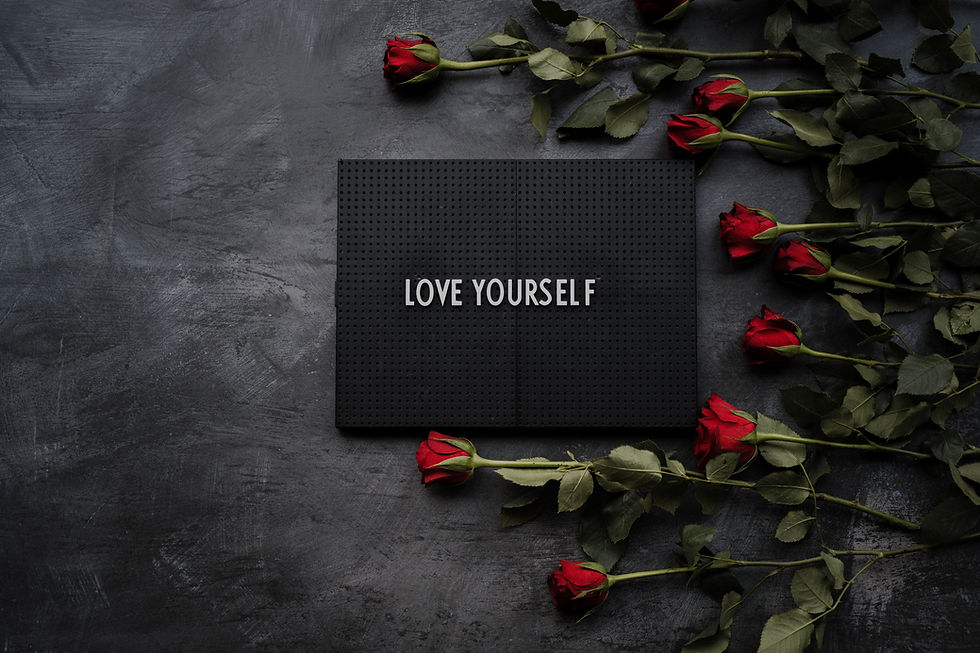What you need to know about "Love Addiction"
- Laura

- May 13, 2021
- 3 min read
How do you feel when you’re not in a relationship?
Have you ever felt the fear of being alone or rejected?
Do you lose interest in things you enjoy when you enter a relationship?
A growing body of research is starting to show that romantic love can be addictive. Love addicts are addicted to the rush of that initial romance, but never develop to what love truly is - presence, intimacy and support.

Love addicts mistake the intensity in a relationship for the intimacy of true love.
This results in relationships that have emotional highs, like intense passion, and emotional lows, like intense disappointment or heartbreak.
Love addiction is an inability to become vulnerable and bond in healthy ways with others. It is a way people cope to protect themselves from difficult emotions like shame, fear, and sadness.
As some love addicts commonly undervalue themselves, they typically end up assigning too much time and value to the person to whom they are addicted. Therefore, it's important to recognize love addiction because, just like with other addictions, love addicts can experience withdrawal symptoms when their addiction is taken away.
The withdrawal from love addiction can be devastating at the end of a relationship. Any stress from love addiction can also lead to poor work performance, depression, or neglecting self-care.
To avoid the pain that love addiction can cause you and reduce the risk of love addiction keeping you from forming your ideal, healthy, loving relationship, it is essential to recognize the signs and learn how to fulfil your own needs and wants.
Signs of Love Addiction
People who struggle with love addiction may:
1. Fear their partner is going to leave them
2. Assign too much time, attention, and value to a person
3. Neglect and undervalue themselves in a relationship
4. Conform to fit into a relationship
5. Use sex, seduction, and manipulation to hold onto a partner
6. Find it difficult to leave unhealthy relationships
7. Mistake sexual or romantic intensity for love and genuine intimacy
8. Feel alone or desperate when not in a relationship
9. Miss important commitments (like with family or work) due to a relationship
10. Think about their relationship to an obsessive degree
11. Experiences a pattern of intense infatuations and obsessive relationships
12. Often crave the excitement and sexual “rush” of a new relationship but finds it difficult to maintain a lasting feeling of attachment
While you may relate to some of the above at least occasionally, love addicts have a consistent pattern of these signs. In a relationship, love addicts will find that their capacity to take care of themselves declines.
Recovery from love addiction requires specific steps to take care of yourself. Since love addicts tend to overvalue their relationship and undervalue themselves, it’s important for them to learn to build their levels of self-esteem and take care of themselves.
Steps to Take Care of Yourself
If you feel like you might be susceptible to love addiction, focus on your overall well-being. These steps will help you build your self-esteem so that you don’t tie your self-worth to a relationship:
Journal
Journaling can help you work through your thoughts and feelings. Start journaling so you can learn more about what you’re feeling and what you want.
Repeat positive affirmations
Positive affirmations can help you feel more positively about yourself.
Set individual goals
Love addicts often neglect and undervalue themselves in a relationship. Instead, set individual goals to help you find happiness outside a relationship and build your self-esteem.
Set healthy boundaries
Learn to prioritize yourself and practice setting healthy boundaries around your needs, well-being, and self-care. To start, identify what you need to feel good, and set healthy boundaries around those.
Keep your commitments
Love addicts sometimes miss important family or work commitments in pursuit of love. Practice keeping your commitments.
Find a therapist
Therapy can help you deal with any unresolved trauma or harmful feelings from childhood. Find a therapist who can support you as you learn to take care of yourself.

When you take care of yourself, you will find the healthy love that encompasses the presence, intimacy, and understanding you deserve.




Comments